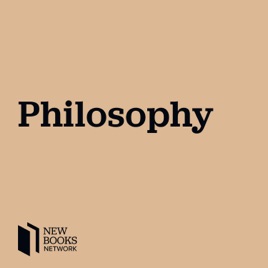
Advertise on podcast: New Books in Philosophy
Rating
4.2 from
Country
This podcast has
363 episodes
Language
Publisher
Explicit
No
Date created
2011/03/14
Average duration
66 min.
Release period
14 days
Description
Interview with Philosophers about their New Books Support our show by becoming a premium member! https://newbooksnetwork.supportingcast.fm/philosophy
Podcast episodes
Check latest episodes from New Books in Philosophy podcast
Rebecca Roache, "For F*ck's Sake: Why Swearing Is Shocking, Rude, and Fun" (Oxford UP, 2023)
2024/02/20
Swearing can be a powerful communicative act, for good or ill. The same word can incite violence or increase intimacy. How is swearing so multivalent in its power? Is it just all those harsh “c” and “k” sounds? Does swearing take its power from taboo meaning? Why is swearing sometimes so funny? In For F*ck’s Sake: Why Swearing Is Shocking, Rude, and Fun (Oxford University Press, 2023), Rebecca Roache, host of the podcast The Academic Imperfectionist, offers us rich insights into the complex importance of swearing to help us understand who gets judged too harshly for doing it, why it’s important to be able to offend with swearing, why we might need to advocate for some swear words, and so much more.
Sarah Tyson is an associate professor of philosophy at the University of Colorado, Denver.
Learn more about your ad choices. Visit megaphone.fm/adchoices
Support our show by becoming a premium member! https://newbooksnetwork.supportingcast.fm/philosophy
more
Michael Devitt, "Biological Essentialism" (Oxford UP, 2023)
2024/02/10
What makes a species a species? Aristotle answered the species question by positing unchanging essences, properties that all and only members of a species shared. Individuals belonged to a species by possessing this essence. Biologists and philosophers of biology today are either not essentialists at all, or if they are think there are essences they are relational, historical properties.
In his provocative book Biological Essentialism (Oxford UP, 2023), Michael Devitt argues for a new form of biological essentialism in which intrinsic essences, probably largely genetic properties, are part of what tie species together and that the actual explanatory practices of biologists commit them to this view. Devitt, who is distinguished professor of philosophy, emeritus, at CUNY Graduate Center, responds to many philosophers critical of his position, and applies his essentialism to debates about race realism and anti-realism.
Carrie Figdor is professor of philosophy at the University of Iowa.
Learn more about your ad choices. Visit megaphone.fm/adchoices
Support our show by becoming a premium member! https://newbooksnetwork.supportingcast.fm/philosophy
more
Lisa Herzog, "Citizen Knowledge: Markets, Experts, and the Infrastructure of Democracy" (Oxford UP, 2023)
2024/02/01
For better or worse, democracy and epistemology are intertwined. For one thing, politics is partly a matter of gathering, assessing, and applying information. And this can be done responsibly or incompetently. At least since Plato, a leading critique of democracy has focused on the ignorance of ordinary citizens. Historically, this kind of critique has supplied the basis for several nondemocratic proposals. Yet it has also worked in the background of a range of views within democratic theory. Among these are views that have relied on markets as mechanisms for sharing and distributing information.
But there are hazards to market-based thinking about democracy. In Citizen Knowledge: Markets, Experts, and the Infrastructure of Democracy (Oxford UP, 2023), Lisa Herzog explores three conceptually distinct sites where democracy interfaces with epistemology: markets, expert communities, and public deliberation. The result is an integrated political epistemology for democracy.
Robert Talisse is the W. Alton Jones Professor of Philosophy at Vanderbilt University.
Learn more about your ad choices. Visit megaphone.fm/adchoices
Support our show by becoming a premium member! https://newbooksnetwork.supportingcast.fm/philosophy
more
Jan Westerhoff, "Candrakirti's Introduction to the Middle Way: A Guide" (Oxford UP, 2023)
2024/01/20
A proponent of the Madhyamaka tradition of Mahāyāna Buddhism, Candrakīrti wrote several works, one of which, the Madhamakāvatāra, strongly influenced later Tibetan understandings of Madhyamaka.
This work is the subject of Jan Westerhoff’s Candrakīrti’s Introduction to the Middle Way: A Guide (Oxford University Press, 2024), part of the Oxford Guides to Philosophy series. His book situates Candarkīrti and his text within Indian and Tibetan Buddhism and helps philosophical readers appreciate the text’s main arguments and ideas. Chief among these is a commitment to the emptiness of all phenomena, especially but not only selves, which is the subject of the lengthy sixth chapter—analyzing what it means for things to lack any substantial existence and criticizing opposing positions. Candrakīrti also takes up topics in metaphilosophy (do critical arguments commit us to positive claims?), philosophy of mind (do enlightened beings have experience at all?), and semantics and logic (what is the difference between conventional and ultimate truth, and can we express the latter in language?). Westerhoff’s guide aims to help readers unfamiliar with Sanskrit or Tibetan navigate these ideas, pointing them to further scholarly and philosophical resources along the way.
Learn more about your ad choices. Visit megaphone.fm/adchoices
Support our show by becoming a premium member! https://newbooksnetwork.supportingcast.fm/philosophy
more
Krista K. Thomason, "Dancing with the Devil: Why Bad Feelings Make Life Good" (Oxford UP, 2023)
2024/01/10
How could a good life include one with anger, or jealousy, or spite? In Dancing with the Devil: Why Bad Feelings Make Life Good (Oxford UP, 2023), Krista Thomason flips the script on popular ways of dealing with our emotions, including neo-Stoicism, mindfulness, and even the prosperity gospel. She makes the case that we should get rid of the double standard we have towards "good" and "bad" emotions, and that we should not aim to be emotional saints. Instead, because "bad" emotions are an essential part of our attachments to our selves, they help us discover what we care about. Thomason, who is an associate professor of philosophy at Swarthmore College, guides the reader through philosophical traditions regarding the relation of emotion to reason and the various approaches thinkers have come up with to deal with our "bad" emotions.
Carrie Figdor is professor of philosophy at the University of Iowa.
Learn more about your ad choices. Visit megaphone.fm/adchoices
Support our show by becoming a premium member! https://newbooksnetwork.supportingcast.fm/philosophy
more
Tyler Dalton McNabb and Erik Baldwin, "Classical Theism and Buddhism: Connecting Metaphysical and Ethical Systems" (Bloomsbury, 2023)
2023/12/20
In addition to denying the existence of a substantial, enduring self, Buddhists are usually understood to deny the existence of a God or gods. However, in Classical Theism and Buddhism: Connecting Metaphysical and Ethical Systems (Bloomsbury, 2022), Tyler Dalton McNabb and Erik Baldwin argue that there is conceptual space to affirm both basic Buddhist metaphysical claims and Classical Theism without contradiction. Their book argues that three fundamental commitments are generally agreed upon by Buddhists: all things are interdependent, impermanent, and empty of "own-being" (svabhāva). However, since Classical Theists like Aquinas deny that God—who is eternal, immutable, impassible, and metaphysically simple—is a thing among other things, accepting the existence of such a God poses no problem for a Buddhist. The book unpacks this thesis, also taking up historical Buddhist and contemporary philosophical objections to a divine being, arguing for a synthesis of Buddhist and theistic ethics and soteriology, and closing with a discussion of the problem of religious pluralism for Christians and Buddhists.
Malcolm Keating is Associate Professor of Philosophy at Yale-NUS College. His research focuses on Sanskrit works of philosophy in Indian traditions, in the areas of language and epistemology. He is the author of Language, Meaning, and Use in Indian Philosophy (Bloomsbury Press, 2019) and host of the podcast Sutras & Stuff.
Learn more about your ad choices. Visit megaphone.fm/adchoices
Support our show by becoming a premium member! https://newbooksnetwork.supportingcast.fm/philosophy
more
Philip Goff, "Why? The Purpose of the Universe" (Oxford UP, 2023)
2023/12/10
Does the universe have a purpose? If it does, how is this connected to the meaningfulness that we seek in our lives? In Why? The Purpose of the Universe (Oxford University Press, 2023), Philip Goff argues for cosmic purposivism, the idea that the universe does have a purpose – although this is not because there is an all-powerful God who provides it with one. Instead, Goff argues, fundamental physics provides us with reason to think it is probable there is a cosmic purpose – and, moreover, the best explanation of these reasons is to posit cosmopsychism: the idea that there are fundamental forms of consciousness such that the universe itself is a conscious mind. Goff, who is professor of philosophy at Durham University, argues that these claims are not as extravagant as they may initially seem, and that his view provides a way for understanding human purposes that lies between secular humanism and religious or spiritual perspectives.
Carrie Figdor is professor of philosophy at the University of Iowa.
Learn more about your ad choices. Visit megaphone.fm/adchoices
Support our show by becoming a premium member! https://newbooksnetwork.supportingcast.fm/philosophy
more
Fabrizio Cariani, "The Modal Future: A Theory of Future-Directed Thought and Talk" (Cambridge UP, 2021)
2023/11/10
What does “will” mean? A standard view is that it is a tensed mirror-image of “was”, and that the truth-conditions of past and future sentences – “He was late to the event”, “He will be late to the event” – are symmetric. In The Modal Future: A Theory of Future-Directed Thought and Talk (Cambridge UP, 2021), Fabrizio Cariani argues against this tense-based view in favor of an asymmetric semantics in which “will” has more in common with “would” and other modal terms, and in which future-directed discourse is close kin to counterfactual discourse, not past discourse. Cariani, who is professor of philosophy at the University of Maryland at College Park, defends an extended version of Stalnaker’s selectionist semantics to explain the semantics of “will”, and considers how his view intersects with issues in speech act theory, the metaphysics of time, and the possibility of knowledge about the future.
Carrie Figdor is professor of philosophy at the University of Iowa.
Learn more about your ad choices. Visit megaphone.fm/adchoices
Support our show by becoming a premium member! https://newbooksnetwork.supportingcast.fm/philosophy
more
Melvin L. Rogers, "The Darkened Light of Faith: Race, Democracy, and Freedom in African American Political Thought" (Princeton UP, 2023)
2023/11/01
Frederick Douglass’s 1852 speech “What to the Slave is the Fourth of July” is notoriously fiery. No doubt part of what’s gripping about it is its internal tension. Douglass begins by sincerely praising the founders and their philosophical principles, and then turns to a devastating critique of the hypocrisy of the United States. Underlying Douglass’s argument is a commitment to the democratic project in the United States that one imagines could be sustained only with extraordinary effort. What prevented Douglass from embracing the understandable, warranted pessimism that the democratic experiment in the United States had failed – or perhaps had never really been taken up?
In The Darkened Light of Faith: Race, Democracy, and Freedom in African American Political Thought (Princeton University Press, 2023), Melvin Rogers takes his reader on a journey through the efforts of African American philosophers, social critics, and artists to make sense of the United States.
Robert Talisse is the W. Alton Jones Professor of Philosophy at Vanderbilt University.
Learn more about your ad choices. Visit megaphone.fm/adchoices
Support our show by becoming a premium member! https://newbooksnetwork.supportingcast.fm/philosophy
more
Chris Fraser, "Late Classical Chinese Thought" (Oxford UP, 2023)
2023/10/20
Late Classical Chinese Thought (Oxford University Press, 2023) is Chris Fraser's topically organized study of the Warring States period of Chinese philosophy, the third century BCE. In addition to well-known texts like the Zhuangzi, Xunzi, and Mencius, Fraser's book introduces readers to Lu's Annals, the Guanzi, the Hanfeizi, the Shangjun Shu, and excerpts from the Mawangdui silk manuscripts. Beginning with a chapter on "The Way," or the dao, Late Classical Chinese Thought explores topics in metaphysics, metaethics, ethics, political philosophy, epistemology, and philosophy of language and logic. By focusing on topics rather than texts, the book aims to show how philosophical discourse happened in the philosophically productive period of the third century.
Malcolm Keating is Associate Professor of Philosophy at Yale-NUS College. His research focuses on Sanskrit works of philosophy in Indian traditions, in the areas of language and epistemology. He is the author of Language, Meaning, and Use in Indian Philosophy (Bloomsbury Press, 2019) and host of the podcast Sutras & Stuff.
Learn more about your ad choices. Visit megaphone.fm/adchoices
Support our show by becoming a premium member! https://newbooksnetwork.supportingcast.fm/philosophy
more
Emily McTernan, "On Taking Offence" (Oxford UP, 2023)
2023/10/01
A lot of work in moral, political, and legal theory aims to define the offensive. Surprisingly, relatively little attention has been paid to the affectively intoned practice of taking offense. One consequence of this inattention is that discussion of offense-taking usually occurs within the context of popular culture critique, where many commentators lament that people today are too easily offended or take offence at too many things. The prevailing thought is that taking offence is usually morally and socially pernicious.
Emily McTernan disagrees. In On Taking Offence (Oxford 2023), she develops a novel conception of what it is to take offence, why taking offence is an essential part of our moral and social repertoire, and when the disposition to take offence is an expression of civic virtue.
Robert Talisse is the W. Alton Jones Professor of Philosophy at Vanderbilt University.
Learn more about your ad choices. Visit megaphone.fm/adchoices
Support our show by becoming a premium member! https://newbooksnetwork.supportingcast.fm/philosophy
more
Matthew R. Dasti, "Vatsyayana's Commentary on the Nyaya-Sutra: A Guide" (Oxford UP, 2023)
2023/09/20
In Vatsyayana's Commentary on the Nyaya-Sutra: A Guide (Oxford University Press, 2023), Matthew Dasti unpacks a canonical classical Indian text, the Nyayabhasya, while simultaneously demonstrating its relevance to contemporary philosophy. The commentary, the earliest extant on the Nyayasutra, ranges over topics in metaphysics, epistemology, philosophy of language, dialectics, and value theory. Dasti's guide includes his own translations of selections of the text and engagement with select interpretive controversies, such as a focused treatment of Vatsyayana's approach to logic in an appendix. Another appendix includes a reading plan and survey of relevant scholarship for readers looking to learn more about Vatsyayana and early Nyaya.
Malcolm Keating is Associate Professor of Philosophy at Yale-NUS College. His research focuses on Sanskrit works of philosophy in Indian traditions, in the areas of language and epistemology. He is the author of Language, Meaning, and Use in Indian Philosophy (Bloomsbury Press, 2019) and host of the podcast Sutras & Stuff.
Learn more about your ad choices. Visit megaphone.fm/adchoices
Support our show by becoming a premium member! https://newbooksnetwork.supportingcast.fm/philosophy
more
Podcast reviews
Read New Books in Philosophy podcast reviews
bjohns383
2022/12/31
Good ideas
Bad editing. This is a great for what it is but could use some formatting changes. The bios at the beginning are usually unhelpful. Lots of verbal qua...
more
MuthaFcuak
2022/12/31
Very interesting, but PLEASE!
Very interesting, but PLEASE, like many others have said in the reviews, either get rid of the “ums” and *lipsmacks* in post-editing, or have the inte...
more
Gaal Dornick
2021/05/18
Content + / Form -
What the title (and other reviewers) said. I’m a philosophy professor and love the content but, for god’s sake, PLEASE edit out the interviewers inces...
more
Selylidne
2020/06/14
Unrivaled depth for a podcast
Podcasts that interview people and claim to examine complex and interesting topics are a dime a dozen, but 99% of them never go deeper than the surfac...
more
jess_simp
2019/03/09
Excellent Philosophy Podcast
Very impressed with the choice of guests and quality of the conversations. This podcast provides excellent introductions to new philosophical works an...
more
flight750
2020/01/15
Please change the hosts
Brilliant guests. Horrible hosts. “Uh, hum, you know, like, uhm...”; ridiculous
Ccr9217
2018/12/14
Please stop saying UH!
It is almost impossible to follow your words! Uh every other word! Please dear god stop so I can listen!
RJJO
2018/04/18
So disappointing
I am a philosophy professor who absolutely loves podcasts. I listen to several everyday and attend live recordings of podcasts every year. But this po...
more
Podcast sponsorship advertising
Start advertising on New Books in Philosophy & sponsor relevant audience podcasts
You may also like these philosophy Podcasts
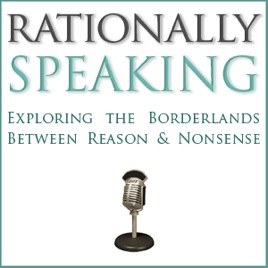
4.5
670
263
Rationally Speaking Podcast
New York City Skeptics
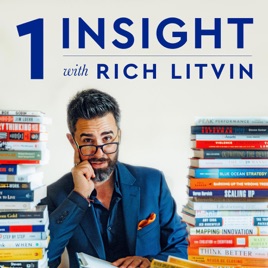
4.9
87
206
1 Insight
Rich Litvin, Founder of 4PC
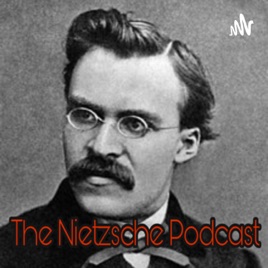
4.9
104
153
The Nietzsche Podcast
Untimely Reflections

4.6
90
174
PlasticPills - Philosophy & Critical Theory Podcast
Plasticpills
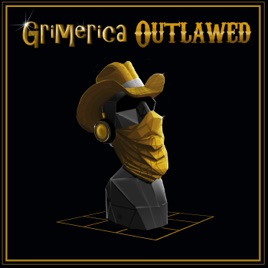
4.7
218
238
Grimerica Outlawed
Grimerica Inc
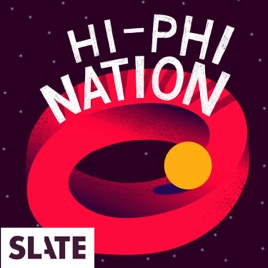
4.8
462
64
Hi-Phi Nation
Slate Podcasts

4.8
90
143
Le Précepteur
Charles Robin

4.6
391
342
Aeon Byte Gnostic Radio
Aeon Byte Gnostic Radio
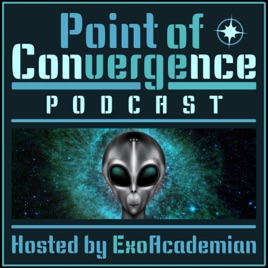
4.8
154
98
Point of Convergence
ExoAcademian
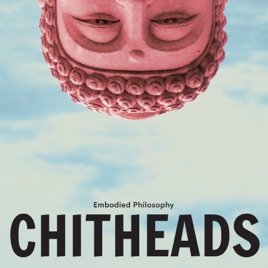
4.8
164
167
CHITHEADS with Jacob Kyle (Embodied Philosophy)
Embodied Philosophy



